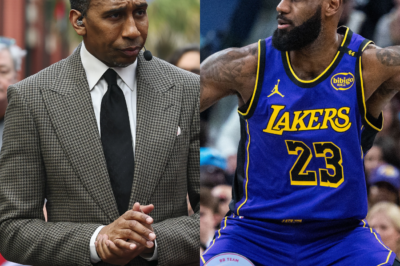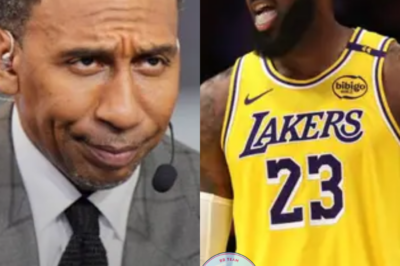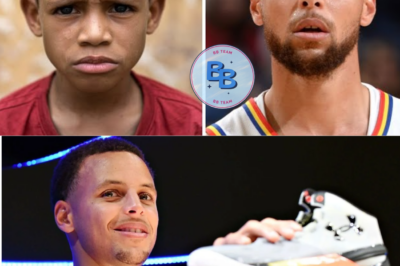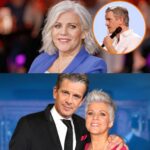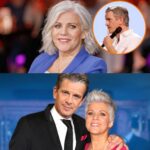Downtown Atlanta, Georgia, on a sweltering summer morning, the air inside the courthouse carried the scent of aged wood mixed with an invisible tension. The grand old building seemed to echo with the weight of history, each corner worn by years of decisions and disputes. Among the hustle and bustle, Darnell Carter, a young black attorney, stepped into the courthouse with determination, his well-tailored suit hugging his frame, his briefcase gripped tightly in his hand.
Today was monumental for him. For the first time, he stood as the lead defense attorney in a case that could make or break his career. The path to this moment had been a long and arduous one, with countless obstacles stacked against him. But this trial wasn’t just about legal strategy. It was about proving that his talents were equal to any of his counterparts, regardless of the color of his skin.
As Darnell walked through the vast, sterile hallways of the courthouse, he could feel the scrutinizing gazes of those around him, the seasoned attorneys whose whispers filled the air. They eyed him like a curiosity, a young attorney who had yet to prove himself in a system that had long been designed to exclude people like him. A graying man, with an air of arrogance, smirked and spoke loudly enough for Darnell to hear, “Is this kid the intern? Hope you didn’t forget the coffee for the judge.”

Laughter erupted from the small group. Darnell clenched his jaw, his grip tightening on his briefcase handle, but he didn’t let their mockery rattle him. He had faced these kinds of remarks since his days in law school, and he had learned not to let them affect him. He kept walking forward, his expression composed, his eyes fixed straight ahead. The courtroom was waiting, and he was about to make his mark.
The courtroom itself was grand, with high ceilings and rows of wooden benches. Sunlight streamed through the windows, casting long shadows across the polished marble floor, adding to the solemnity of the space. As Darnell entered, he could feel the weight of the atmosphere.
The prosecution team was already seated, and Darnell’s eyes briefly met those of Richard Vaugh, the lead prosecutor. Vaugh, a sharp middle-aged man in a crisp gray suit, gave him a subtle smirk, a look of condescension flashing across his face before he quickly masked it with his usual composed demeanor. Darnell ignored him and took his seat at the defense table, his briefcase in front of him. He opened it to double-check the documents, his hands steady despite the pounding of his heart.
He knew the trial ahead would not be easy. The case involved a middle-aged white man accused of assaulting a black employee, and to many, it seemed like just another straightforward case of assault. But for Darnell, it was much more. It was a chance to prove his worth in a system that had always been stacked against people like him.
As the trial began, the atmosphere grew tense. The judge entered, and the room fell silent as the gavel struck, signaling the start of the proceedings. The jury settled into their seats, and Darnell could feel their gaze upon him. He was a young black attorney standing before them, taking on a high-profile case. They were all waiting to see how he would perform, whether he would stumble, whether Vaugh would crush him in his opening statements. But Darnell had prepared for this.
He had worked tirelessly, studying every detail of the case, anticipating every argument Vaugh would make. And now, as the trial officially began, he felt a surge of confidence. He wasn’t just defending his client; he was defending his place in this world, in this courtroom, as a capable and intelligent attorney. He was determined to prove that he belonged here, that his skill and intellect were not defined by his race.
Richard Vaugh rose first to deliver his opening statement. His voice was deep and commanding, filled with authority as he spoke to the jury. He laid out the prosecution’s case in simple, clear terms: the defendant was at the scene when the victim was assaulted, and a witness had seen it all. Vaugh spoke with a confidence that only comes from years of experience, and his words left little room for doubt. The message was clear: the defendant was guilty, and there was no reason to question that conclusion. Vaugh’s opening was delivered with such conviction that the jury was already leaning in favor of the prosecution.
But Darnell was not intimidated. When it was his turn to speak, he stood up, adjusted his tie, and walked to the center of the room. His voice was calm but firm as he addressed the jury. He didn’t deny that the defendant had been at the scene, but he urged the jury to look beyond the surface. “Justice is not a simple story told with a few powerful words,” he said. “If everything were that easy, would we even need a jury?”
He called on the jury to question the evidence and not to rush to judgment based on assumptions. He asked them to consider whether they could truly convict someone based solely on partial information. His words didn’t come with the same force as Vaugh’s, but they had a different kind of power. They made the jury think, and that was all Darnell needed to do at this stage. He wasn’t looking for a quick victory; he was planting seeds of doubt.
As Vaugh countered with his own sharp remarks, Darnell stood his ground. The tension in the courtroom was palpable, but he didn’t flinch. He wasn’t there to play a game of words; he was there to ensure that justice was served, not based on rhetoric but on truth. And as the trial progressed, Darnell’s skill in questioning the witnesses began to shine. When the first witness testified, Darnell’s line of questioning exposed cracks in the prosecution’s case. He didn’t need to discredit the witness entirely; he only needed to raise enough doubt to make the jury question the reliability of the testimony.

The turning point came when Vaugh introduced a video of the crime scene. The footage showed the defendant near the victim, and the prosecution used it to strengthen their case. But Darnell, ever the strategist, noticed something in the video that no one had seen. He asked for the video to be paused at a specific frame, and in that moment, a third figure appeared on the screen for a fraction of a second.
Darnell had found a crucial detail that Vaugh had overlooked. He pointed out that the figure’s presence could change the entire narrative. Vaugh tried to dismiss it, but Darnell wasn’t backing down. He continued to challenge the evidence, forcing the jury to consider the possibility that they were not seeing the full picture.
With each question and each statement, Darnell chipped away at the prosecution’s case, creating doubt in the minds of the jury. By the end of the day, the courtroom was no longer swayed by Vaugh’s initial confidence. Darnell had shown them that justice wasn’t about the easiest conclusion but about seeking the truth, no matter how complex it might be. The case was far from over, but Darnell had already made his mark. And as he left the courtroom that day, he knew that the battle had only just begun.
News
Stephen Curry scores 52 points, hits 12 3-pointers in Warriors’ 134-125 win over Grizzlies.
Curry became the 3rd player in NBA history with at least 50 points, 10 rebounds, five assists and five steals…
Stephen A. Smith says he would have ‘immediately’ taken swing at LeBron James had Lakers star touched him in confrontation.
The ongoing Stephen A. Smith-LeBron James feud has escalated. A very public back and forth between the ESPN pundit and…
Stephen A Smith, Lebron James feud takes turn no one expected.
(Kirby Lee, Gary A. Vasquez-Imagn Images) When two individuals at the top of their selected professions have a public disagreement,…
Stephen Curry Meets a Young Boy Who Can’t Afford Basketball Shoes What Happens Next is Life-Changing
The Power of Dreams: Jamal and Steph’s Unlikely Connection In the heart of East Oakland, amidst the cracked concrete courts…
Michael Jordan Gives Stranded Woman a Ride, 3 Years Later She Finds Out Who He Really Is
In a pouring rain in Chicago, Sarah Thompson was driving her old Honda on a deserted road, trying to get…
Michael Jordan Bought His Mom Her Dream House – Her Reaction Left Everyone in Tears!
When Michael Jordan was just eight years old, he promised his mother one cold evening as the family sat around…
End of content
No more pages to load


